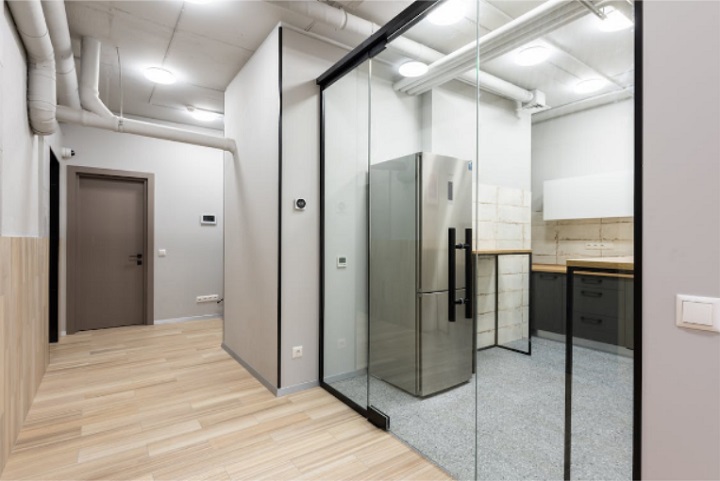With the help of advances in technology and engineering knowledge these days, commercial doors are no longer just the same as their residential counterparts. There is so much more that goes into them when it comes down to the door materials used, security features offered, size configurations available, and even regulations for safety/compliance!
This article will discuss five crucial ways commercial doors differ from residential ones depending, and why these differences matter!
1. Commercial Doors Offer High Levels of Security and Resistance
Reinforced hinges, locks, and frames give security doors on commercial property extra strength to deter potential burglars and break-ins. In most cases, high-grade steel is typically used for exterior commercial door frames, thanks to its incredible strength and longevity over residential models.
Notably, features like threshold plates and panic devices attached with latch bolts are used to make these doors even more secure from outside threats. Moreover, an extra layer of security could be incorporated in the form of sensors that trigger alarms when someone tries to gain access to locked areas without proper authorization.
2. Higher Grade Materials Make Commercial Doors More Durable
Commercial doors are usually made of higher-quality materials than residential models. This, if your guess is as good as anyone’s, helps ensure they can withstand years of heavy usage without showing signs of wear and tear.
For example, commercial frame door systems are often engineered with special metal alloys as well as robust layers to shield against weather elements or impacts from forklift trucks. This is also a key reason why companies prefer using areas like warehouses and offices that feature durable yet secure entrances. It helps allow uninterrupted workflow in an enclosed environment, safe from outside disturbances.
3. Different Sizes: A Major Difference Between Residential & Commercial Doors
Commercial doors tend to come in larger, more diverse sizes and styles than residential ones. This is because commercial spaces often handle more activity and higher traffic loads compared to home usage scenarios.
For instance, apart from catering to typical pedestrian access needs, warehouse spaces often require commercial doors large enough for transferring goods or services on pallets. Entrances here must feature a wider wingspan that allows safe passage of wheelbarrows while still providing ample security when locked.
Similarly, mixed-income housing units are best served with entries that can fit bulky items like refrigerators during move-in/out days without compromising aesthetics or functionality requirements.
4. Commercial Doors Typically Get Much Heavier Use… and Need More Repairs
It’s not just the materials that differ between domestic and commercial door structures. Heavier footfall and usage of commercial doors lead to higher wear and tear rates, resulting in additional maintenance costs over time.
This includes reparation for visual damage caused by weathering factors such as continuous exposure to the elements, as well as replacements on parts such as hinges, handles, and such, which are used more frequently than residential counterparts.
This makes it paramount for commercial establishments with large-scale operations to always have a good inventory of spare parts for commercial doors, so you can quickly and easily perform repair work when needed. Commercial door hardware may also come in handy for repairs needed to beef up security and enhance workplace safety.
5. Many Commercial Doors are designed for Specific Functionalities… With Compliance in Mind
Business owners must think beyond functionality when it comes to doors, as some may be subject to specific regulations for safety and emergency management. For instance, regulations may require commercial entrance doors to be transparent and fire-rated.
Also, a door that’s used for loading and unloading goods demands the ability to open quickly and easily. It’s important that any commercial door is capable of providing transparency and receiving the necessary inspection from a risk management resource like a fire marshal or their team.
To sum it up, it’s clear that residential and commercial doors have certain differences in terms of secure materials, sizes, usage, and compliance, all of which are important to consider when making a choice. In order to make the best purchasing decision for your building needs, it is essential to remember the distinct advantages offered by these two door types.




































